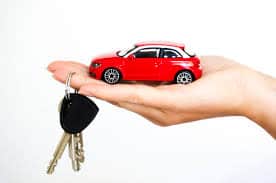So, I’ll be the first to admit that car leasing seem pretty intimidating to me before I’d properly looked into it. All the acronyms and finance terms can be pretty confusing if you’ve really looked at a different form of car finance before.
Once you get your head around it, it’s surprising simple and you can make a lot of savings if you pick wisely. I realise that you probably want hard evidence though before you ditch your hire purchase agreement for a contract hire one.
Here it is then! I thought I’d do a proper comparison of car leasing versus conventional buying, to try and answer the question.
For your info: I’ve sourced all of the information in the comparison below, online, using these two sources: a car lease comparison calculator and a car leasing comparison website.
What is leasing?
So, before we start, let’s make sure we all understand what leasing actually is.
Leasing a car is when you rent it for a period of time– usually between a year and five years. When the agreement comes to an end, you just return the car to the company that you originally leased it from in the first place. Simple, huh? You don’t actually own the car properly during the time that you’re using it. Instead, you’re just the keeper of the car. That means you don’t have the power to sell it.
Leasing eliminates a lot of the issues that can come with actually owning a car– namely that of depreciation, or how quickly a car loses value. According to the AA, within three years of ownership, a new car will have lost 60% of its initial value. Depreciation is a problem when it comes to eventually selling the car. You can often find that you’ll lose a lot of money through owning a car– a vehicle will (more often that not) be worth significantly less when you come to sell it than it was when you first bought it.
What is buying?
Buying a car is simple enough to understand. You see a car and pay the amount that is asked for it, either upfront or through getting a car finance agreement out. Most people usually can’t afford to pay the full asking price for the car straight away, so they’ll opt for the finance option. The most common type of car finance people get to buy a car is usually hire purchase– an agreement where you pay back the full value of the car in monthly installments with interest.
Leasing vs. Buying: A comparison
Imagine two identical twins. Let’s call them Bill and Bob. They’re both 32, they both live on the same street in the suburbs of Wilmington, North Carolina and they’re both obsessed with the BMW 4 Series Coupe– specifically the 420d M Sport 2dr model. They’ve both held their licence for 20 years and they’ve never claimed on their insurance policies. The car costs about $43,000, if you were to buy it straight away from a dealer.
Buying the car
Bill decides to buy the car. He doesn’t have the $43,000 upfront so he decides to get some car finance out instead. He chooses a standard hire purchase agreement, where you borrow the money and pay it back in monthly instalments with interest until the full value of the car has been paid off.
Bill is required to pay a deposit of $4,300– 10% of the overall value of the car. That leaves $38,700 left to pay.
The hire purchase agreement he gets is structured like this:
Total price of the car: $43,000
Deposit: $4,300
Amount to pay off: $38,700
Interest: 6%
Length of term: 48 months
Monthly repayments: $1,009.86
Total paid back with interest: $48,473.28
Leasing the car
His brother Bob decides to lease the car instead. He chooses a standard personal contract hire lease, where you lease a vehicle for an agreed period of time and then return it to the same company when the contract finishes.
His contract terms look like this:
Initial payment (the lease version of a deposit): $4,149.71
Interest: 6%
Length of term: 48 months
Monthly repayments: $345.81
Total paid for term: $16,598.88
The verdict: which is cheaper?
So, as you can see, leasing works out significantly cheaper than buying in the long term– we’re talking $31874.40 cheaper. Admittedly, you will have to include the cost of auto insurance and servicing, but you’ll still be making a sizeable saving.
A lease works out cheaper because you’re only paying for the value that a car loses during the time you own it– as opposed to a Hire Purchase agreement, where you’re paying off the full value of the car.
I guess, the main reason folks don’t like the idea of leasing is because they like the idea of owning property that they can sell on. Cars lose their value so quickly though, that there’s no point in treating the majority of auto purchases as an investment and a future cash-cow. If you’re planning to sell the car in the future, 9 times out of 10 you’ll lose money. That makes buying a car look like a bit of a fool’s errand to me, personally.
About the Author
Tom Butcher is a freelance writer, covering a wide range of topics, including finance, business and motoring. At the moment, he is helping LeaseFetcher tell the world about contract hire and leasing.

